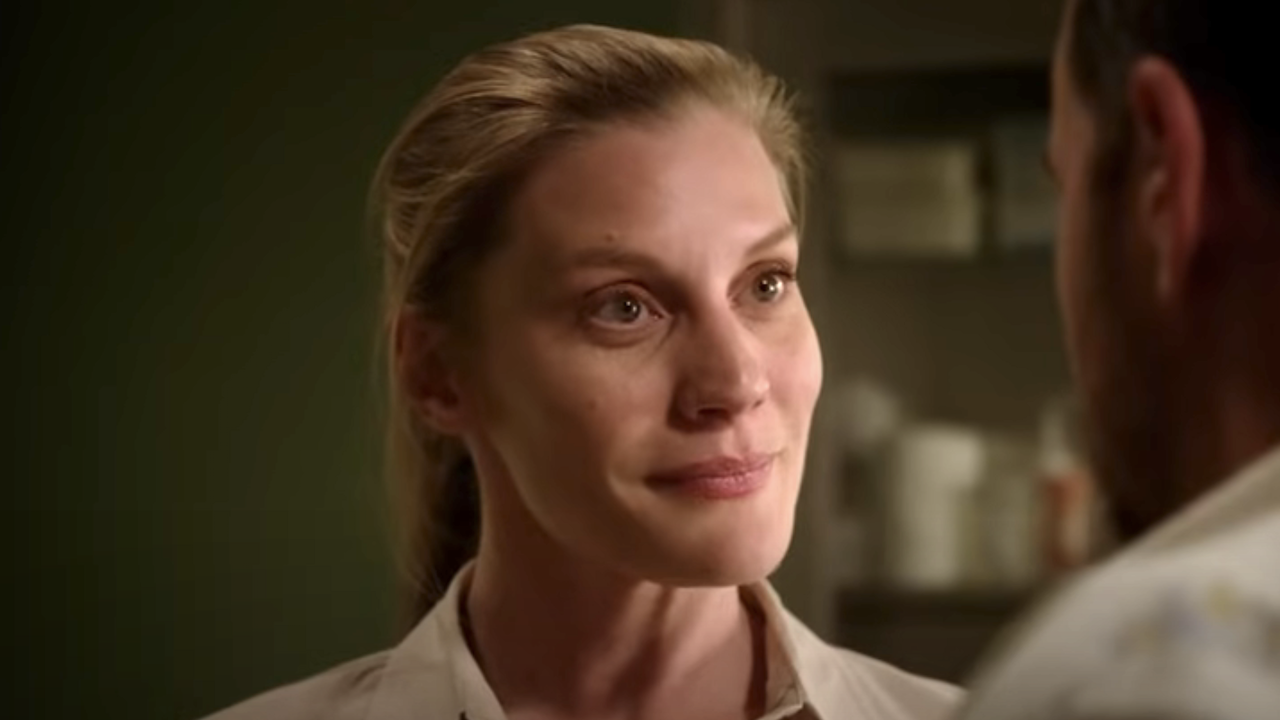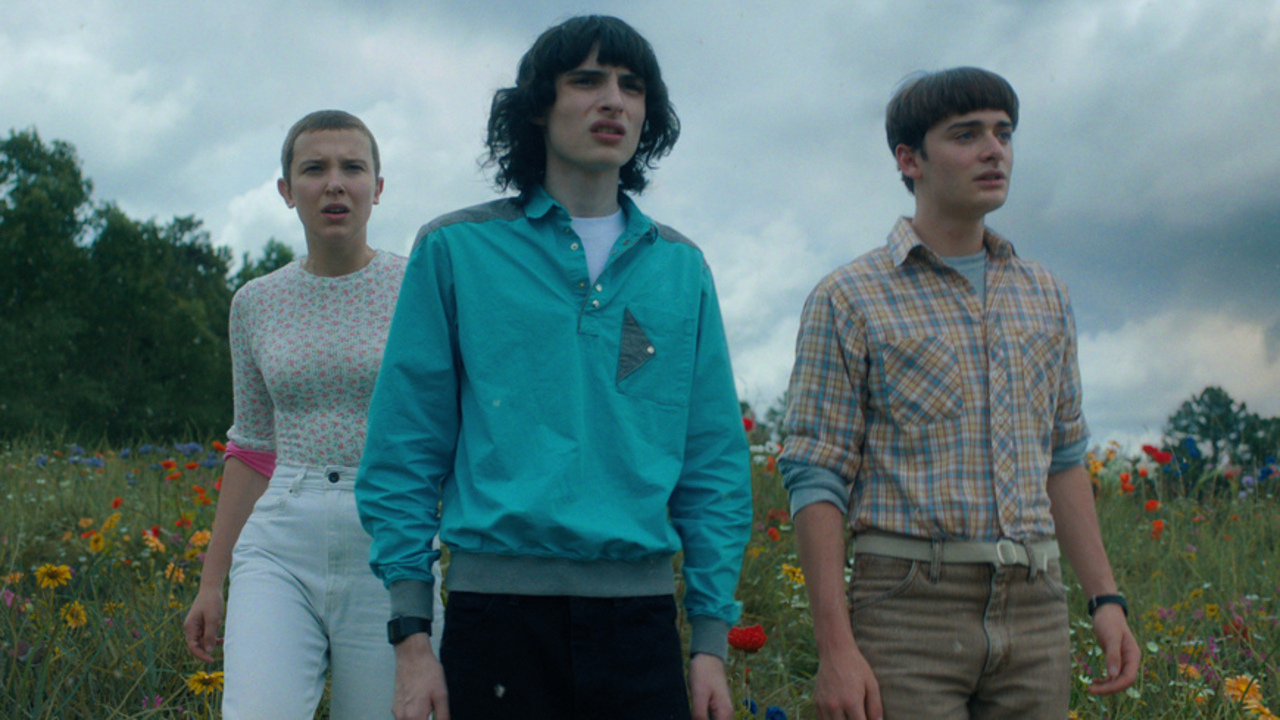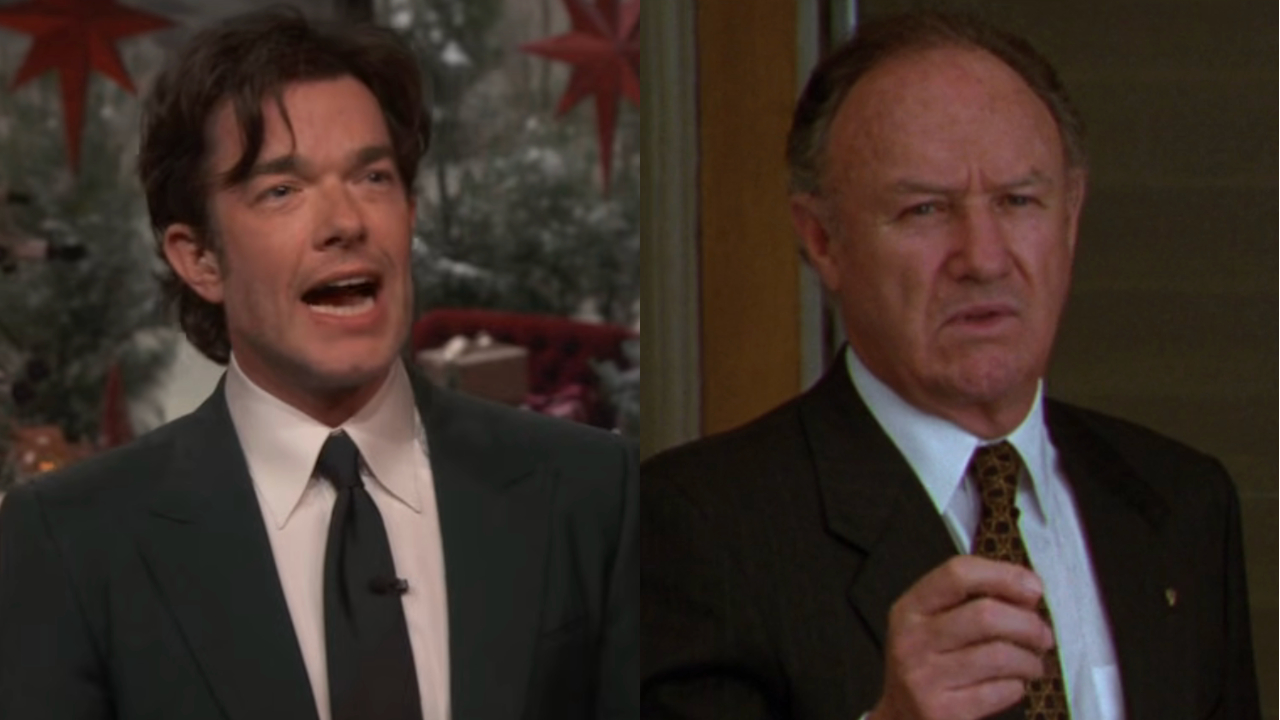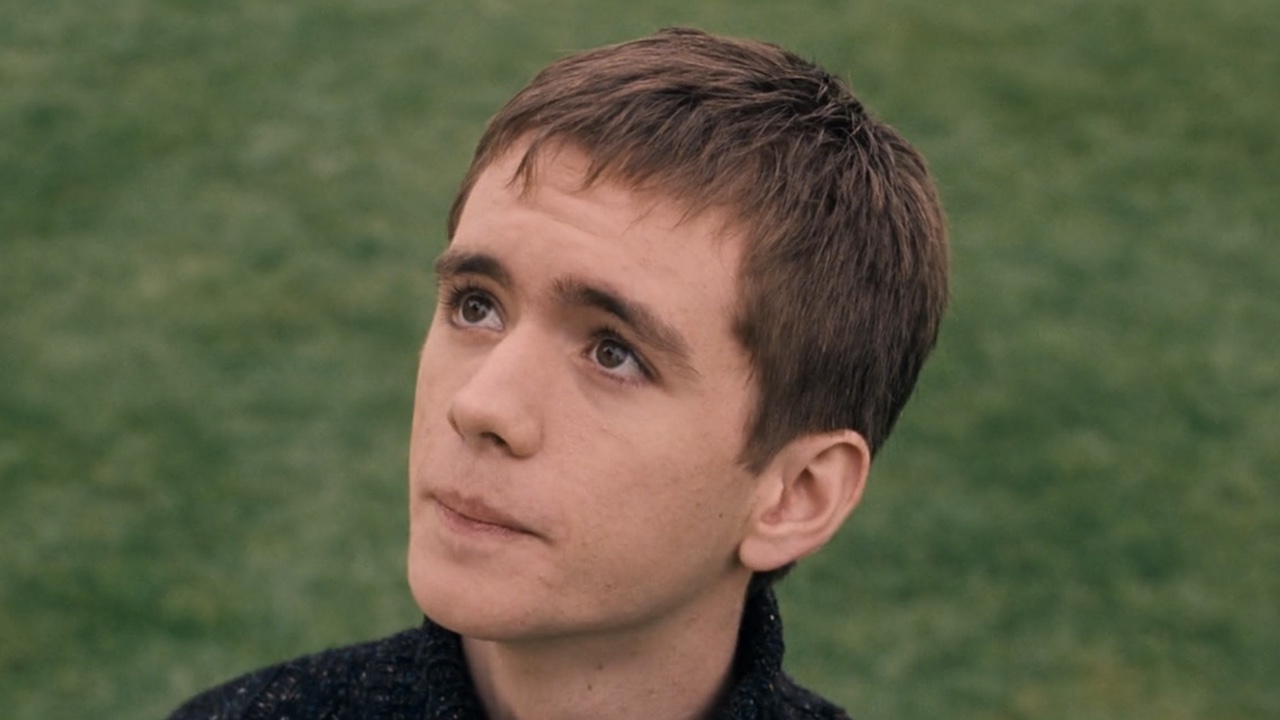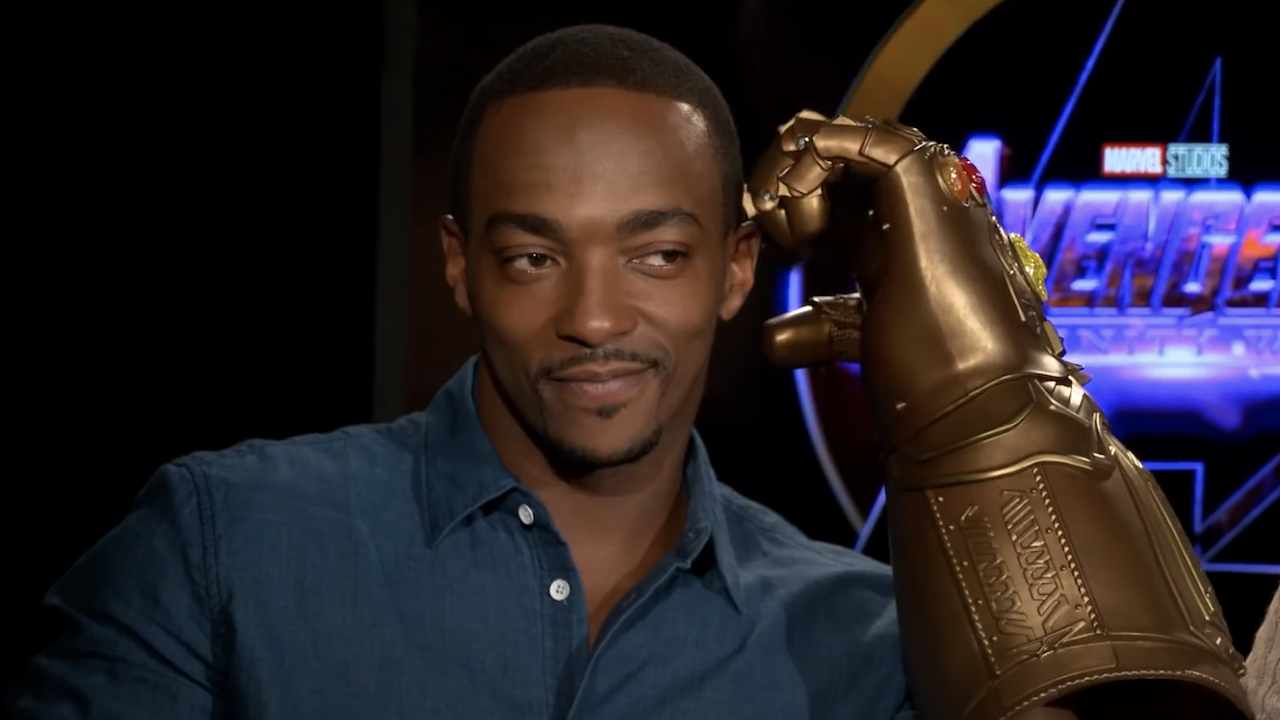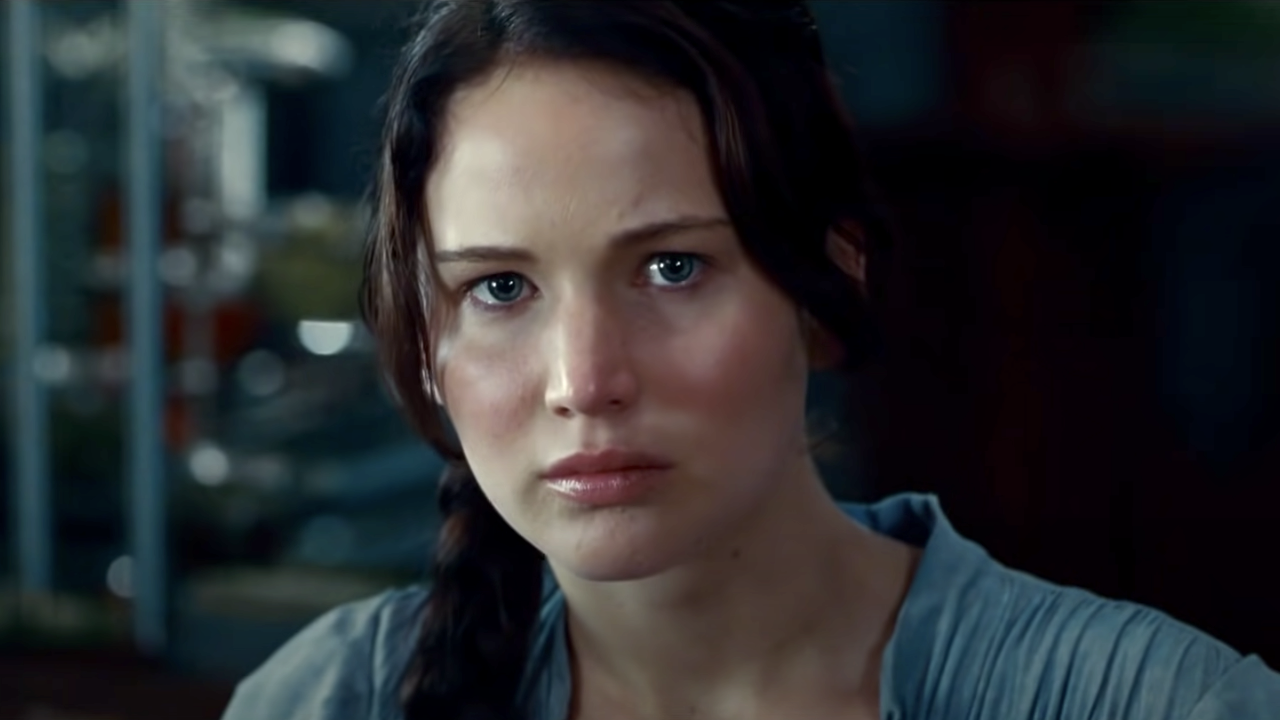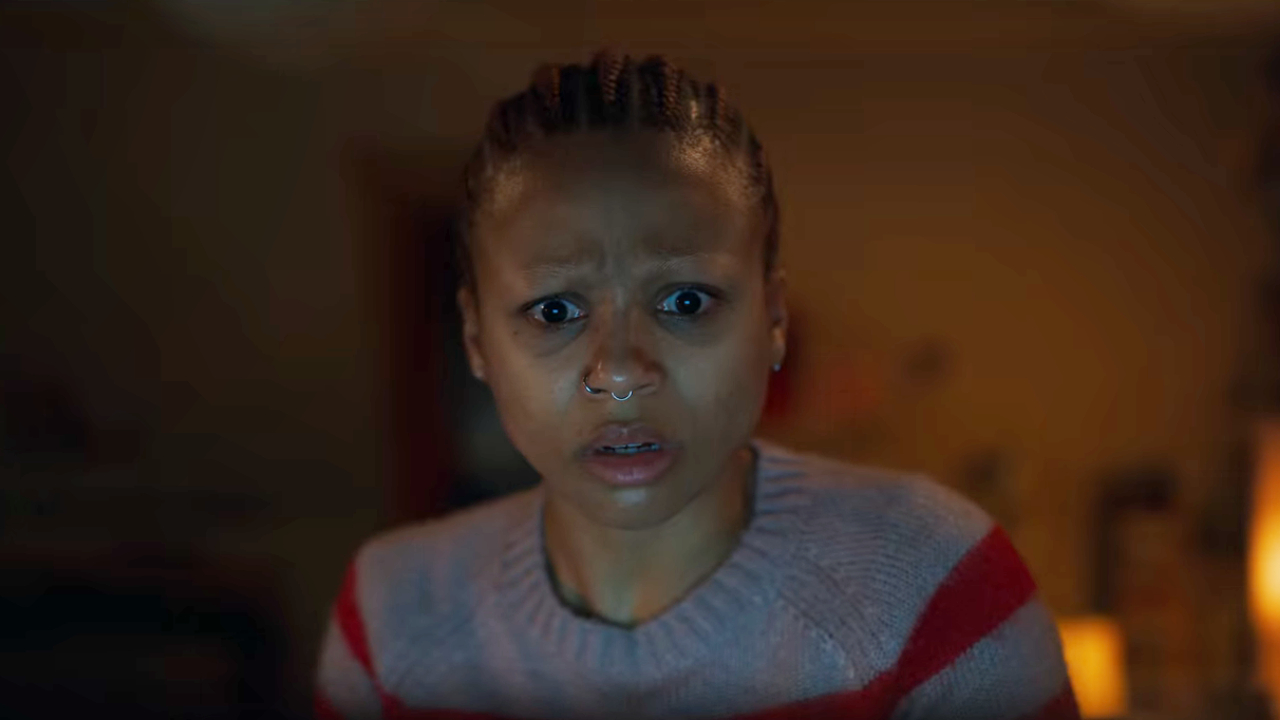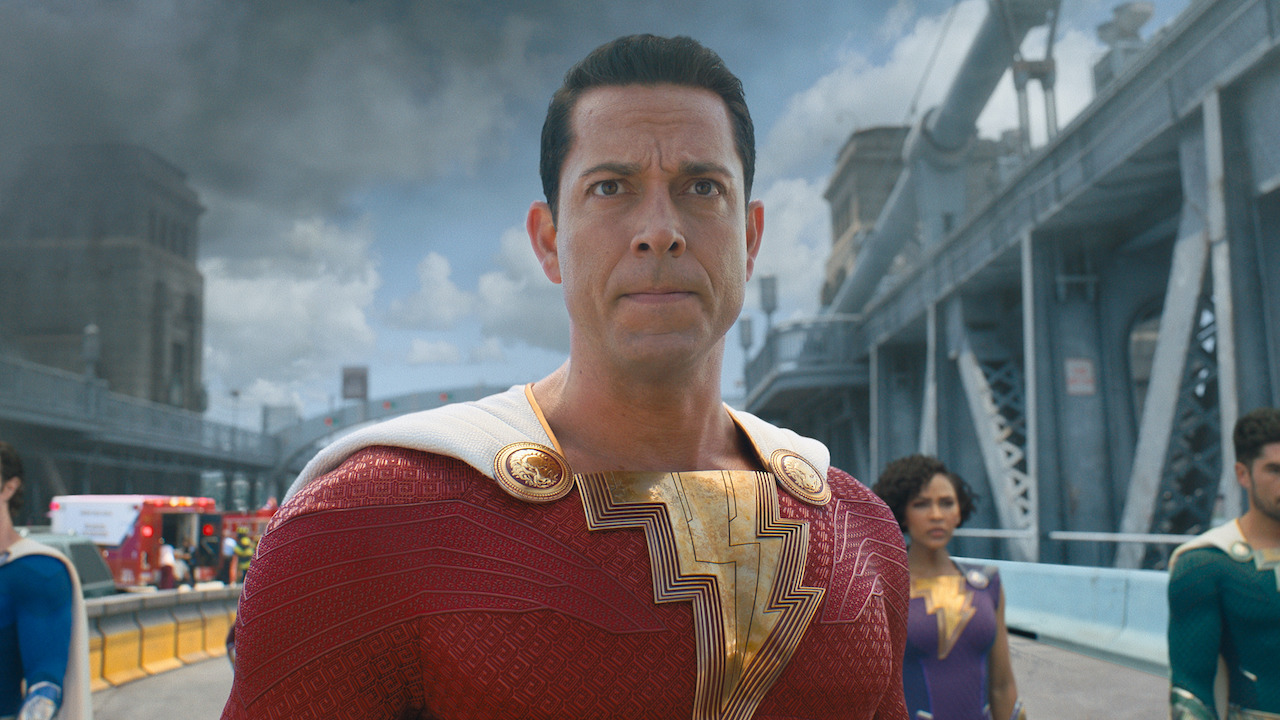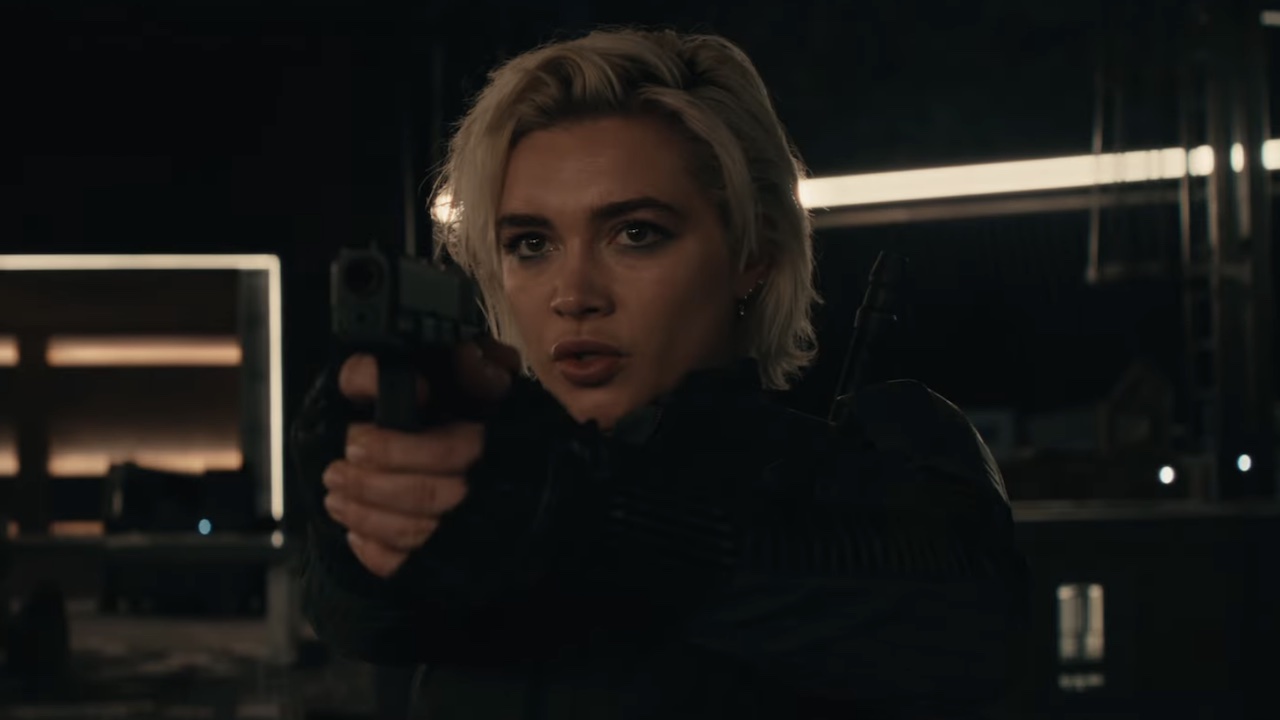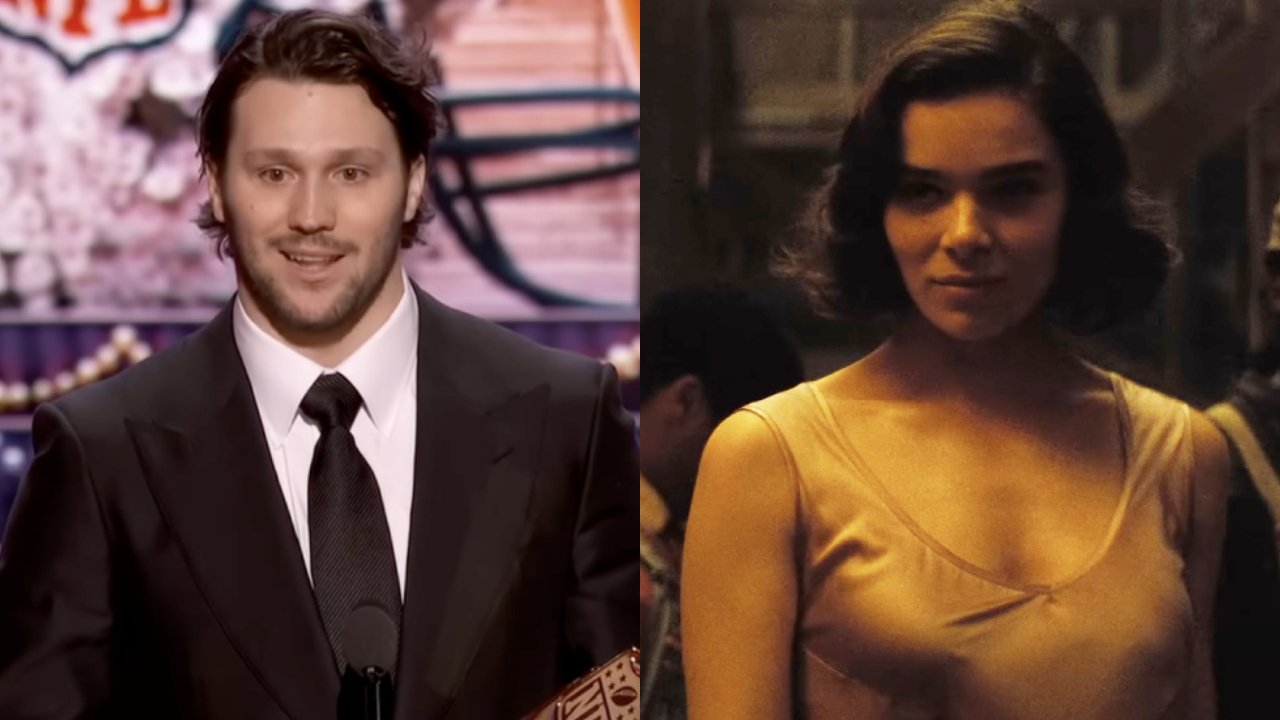Exclusive Interview: Super Writer/Director James Gunn

James Gunn is a director who’s not afraid to make you squirm. From his work with the notorious Troma Entertainment to his 2006 comedy/horror Slither, the man has a knack for finding exactly what will truly get into the audience’s head. That’s certainly the case in his newest film, Super.
I was recently given the opportunity to sit down with the director one-on-one to discuss his new movie, coming out this Friday, at length. Check out the interview below, in which we talk about working with a familiar group of actors, casting Ellen Page and how religion entered the picture.
SPOILER WARNING: Some of the interview concerns a major spoiler, but that section is clearly marked off. If you do not wish to have part of the film ruined, do not read that section.
You’ve developed this kind of reputation, from Troma to Slither and now this film, of an over-the-top mentality, but while you’re writing do you ever set a bar for yourself? Is there a line you will not cross?
No.
Even for, like, marketability purposes?
No, listen, I’ve had, on Slither I had plenty of things that they made me change. For instance, I had in my script, there’s the two little girls become zombies, or whatever they are in that movie, and I showed them getting infected by the worms, and it’s just that that was something that was not gonna fly. And sometimes people are right, it’s good to pull back. You don’t want to always, every movie isn’t the same. But I think in this movie, the thing was that we weren’t going to pull back. Because that was a part of the nature of the film itself, the fact that we didn’t hold back, whether it be the tonal shifts, or the violence, or the amount of rapes in the movie, or anything. We just weren’t gonna pull back so I just kinda let myself go from the beginning.
CINEMABLEND NEWSLETTER
Your Daily Blend of Entertainment News
So was there anything that gave you hesitations?
No, there’s one thing I changed, actually. Early on, my original producers were Chuck Roven and Alex Gartner over at Mosaic, and in the scene where Libby smashes a guy’s face with that vase, and she takes the rodeo thing, using her terms, and goes to smash his head open, she originally smashed his head open. And Alex Gartner at one point said, “You know what, I think maybe that’s just going too far. I think that maybe the audience is gonna lose...I know she’s a sociopath, and she really would do that, but by seeing it I think the audience is going to lose their sympathy for her, which affects what happens later in the movie.” And he was right, and I changed it. That’s the only thing I really changed in terms of that sort of thing.
BEGIN SPOILERS
On that same kind of note is that I did feel a lot of, Ellen Page puts on such an incredible performance, and so when she meets her end I was absolutely blown away. So you never had any second thoughts? Because it’s almost, like, the unwritten rule about shooting the puppy.
No I mean I think that, you know, no. When I was in the first, you know I wrote the first draft one day and that was a part of it from the beginning.
END SPOILERS
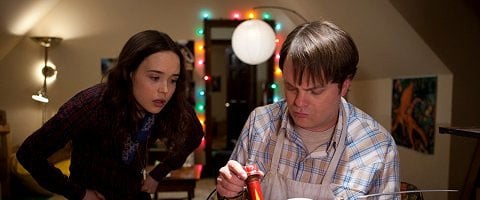
Talking more about Ellen Page’s casting because she’s absolutely phenomenal, I mean the entire cast is absolutely brilliant, but Ellen Page puts on a performance that I’ve never seen her do before. So when you were casting her for this part, what was it that inspired you to cast her?
Well, a couple of things. It was Rainn gave Ellen the script, and I did not think Ellen was gonna wanna do this movie. Because I really thought that when we were first making that it was going to be Rainn Wilson and a bunch of up-and-comers. I didn’t think we were going to get big names, definitely didn’t think we were going to get the names that we got. So we went to Ellen. Ellen, instead of like, not responding for two months, which I thought was going to happen, because at the time I said to Rainn, “Don’t give her the script because then we’re going to be waiting forever, there’s no way she’s gonna say yes, and if she does say yes, her team is gonna freak out on the screenplay, they’re not gonna let her do it. So don’t even give it to her.” And he’s like, “No, no, it’s worth a shot.”
So we gave her the script, she responded right away and said she was really interested in doing it. And I sat down with them, and I was a little afraid, but one of the things Ellen said to me is, “What I really love about the script is that every screenplay I seem to get that people, the roles people seem to offer me, are like these young women who are wise beyond their years, snarky young characters. This character’s the exact opposite, she’s a twelve-year-old in a twenty-three-year-old’s body.” And that’s what it’s about, this immature energy that’s so outward, not inward at all, she says anything that comes to her mind. Juno’s a totally different character, Juno, everything that comes out of her mouth is like poetry, like she’s had a while to think about it. And in this movie it’s like, she says stuff that makes no sense constantly, and to her it makes sense, but it doesn’t.
And so, in meeting Ellen, I loved her as a person, and that was a very important thing because we were going to move so fast that I couldn’t have somebody who I didn’t trust. But I really thought she understood the role intellectually. And she didn’t audition, I didn’t have that luxury, but I thought she understood it intellectually and I knew that she knew the kind of movie I was trying to make, because we talked a lot about the different films that influenced me, which are films that most people don’t think of. Lucas Moodysson’s films out of Sweden, or she turned me on to this movie called Ratcatcher which is a great movie, and that was the kind of film style we were doing, so she understood what I was making. I had a trust that she was going to be able to do it. The first day, the first thing we shot was a scene where she runs into the guy with her car and she jumps outside in her bra, it’s fourteen degrees outside that day, and she’s jumping outside and yelling and going crazy and I’m like, “Thank you God, that’s great, she’s actually going for it.”
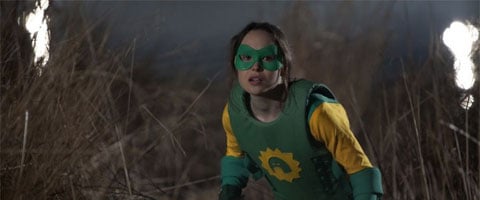
Actually I just watched the movie, seeing the scene, her breath coming out and it’s just ridiculous.
It was so fucking cold. Originally I wrote the script to be in Detroit and we were gonna shoot, we shot December and January, like right around that holiday break there, which is great because we had a break in the middle of shooting, which was something that was necessary, but it was the coldest Louisiana in twenty years. So it was like fourteen degrees, eighteen degrees, outside. Poor Ellen’s running around in her bra, her skimpy, you know. It was bad for those guys but at least they get to go in and come out. For me and the crew, we literally are sitting out in the freezing cold for twelve hours. By the end we had all bought enough extra layers and shit that we were all these little mummies walking around, but the first few days we were not prepared for that kind of cold.
You mention that you didn’t have the luxury of casting for Ellen’s part. Did you audition for the other roles?
Not for the four main roles. It’s like we offer, we got the first people we offered it to. We offered it to, well Rainn’s a different story because we did the movie together, but we offered it to Ellen, she said yes, we never thought we would get her, we offered it to Liv and then she said yes, which we never thought was gonna happen, never thought that was gonna happen!
She was also coming off a long break.
I know, I know. That was the best. We had another actor cast for Jacques, and I was really excited about this guy playing the role. He ended up being undependable, at least from my point of view. And he was disappearing and I couldn’t get a hold of him, and his manager couldn’t get a hold of him, agent couldn’t get a hold of him, and this was not the type of movie that we could have any sort of flaky behavior. And one of the other actors had worked with him before and was like, “Don’t. Don’t do it. He’s…you know, he’ll show up to set and be two hours late.” And like literally we need, ten minutes on this movie is like an hour on another movie. So I just couldn’t risk it. I was waking up with heart palpitations, and I fired him. And then I tried to find somebody else, and I gave it to Kevin right away, and Kevin said yes, and it was like a week and a half before shooting.
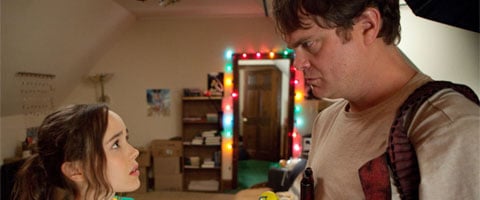
In that same sense, in addition to having a lot of, because you also have plenty of people returning, I mean Michael Rooker, and also on the other side your composer also, does it make the filmmaking process that much easier when you’re working with people who you’re friends with and worked before with?
Yes, yes. Like I can yell at Rooker. I love him, I yell at him, I really yell at him, and so there’s no, I don’t baby him. On Slither I babied him, because I barely knew him, now I like, I love him but I hate him, and I can push him around. So having those guys around, for me, on a movie like this, which is so hard. And it’s, look. It’s Michael Rooker who’s a good friend, it’s my brother Sean, Stevie Blackehart who played one of the other thugs, my best friend in the world now, Linda Cardellini is one of my three best friends in the entire world. You know, it’s like having these people around and just feeling like we see each other all the time, and it’s just like, just being able to stop for ten seconds and put my hand on my brother’s shoulder and say, “Whew.” It’s like, it’s necessary. It’s nice to have that kind of emotional support because I don’t get much of it when you’re making this movie. It’s really a long, long battle, so I love having those guys around. But not only that, they’re really talented people. Rooker, that role that Rooker plays, like he’s a fucking…that character has like three or four lines in the movie, but you totally remember. He adds something to every scene he’s in. He’s a morally ambiguous character. He brings a tone, just a depth to that hood number one that you would never expect could be there. He’s really an amazing actor and I love filming him, he’s fantastic.
Going back to a comment you made earlier, which I think most people are gonna agree with, Ellen Page’s Libby is a sociopath. But I think what’s there’s going to be a lot of debate about Frank’s story. On one hand, he has the hallucinations, he has religious visions, and he’s obviously quite violent. But at the same time he seems to be very clear on his motives, he seems to know exactly what he’s doing. So I’m wondering, as the writer/director, do you think Frank is sane?
Yeah. I do. I mean, listen, the movie’s a fairy tale. It’s not real life. If it was real life, maybe he’s crazy. But I think, again he is crazy, partially, we all are insane. I mean it’s like, he’s got issues. He’s got big, big issues. But do I think that he’s really? That’s what I think. I don’t think that’s what the movie says, necessarily, I think the movie is a question that the audience can decide for themselves how they feel about it. But I really relate to Frank. I said this to Rainn a little while ago, I said, “The truth is, if Frank is crazy, I’m crazy.” And Rainn turned to me and he said, “You’re crazy.” I was like, okay, that might be the case, but I very, very closely relate to Frank. And obviously that doesn’t mean I think people should, but yeah, I relate to Frank. I think he’s a good person.
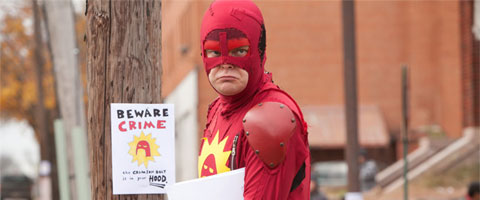
What I really love about this is that it’s not like, I mean sure, he does go off to like trap monsters and you see all these super hero movies going after organized crime, and meanwhile Frank is bashing a guy’s head in for cutting in line. Is that almost, just kind of like, an inner Id?
Oh yeah. I hate line butters. I think that’s one of my favorite scenes in the movie. First of all because it freaks out everybody, but also, because it’s like, you’ll never believe, the movie that inspired that scene is Unforgiven. You know at the end of Unforgiven when Edward Munny goes and he kills all those people and you’re like, “I love him killing those sons of bitches,” but at the same time, he’s kind of a bad, like, he’s shooting people that are just standing there. You know Gene Hackman’s character Little Bill, he’s not really an evil character, you kind of understand why he’s doing what he’s doing. So like, you’re rooting him on, it’s like almost a commentary on every film that Clint Eastwood had done to that time. You’re rooting him on at the same time that you’re going, “Oh, wow, I’m rooting him on. What’s wrong with me?” And I think that’s true for a lot of people who watch the line-butting scene. You’re like, “What an asshole!” you’re like, “I want him to get hit!” You see him get hit and you’re like, “Oh, that’s fucked up. And I feel really embarrassed that I kind of like that he did that to that son of a bitch!”
It’s something we can all relate to.
And then he hits the girl, and then you’re kind of like, “I don’t know…”
Another thing is that in addition to being a parody of a superhero, you also have a lot of religious elements. And I’m wondering how that element entered the story?
Well I just find it, I find I like the discussion of religion, I think it’s a fascinating discussion. I mean the things is, you talk about what are the taboo things in films, it’s like incest and drug use and rape, and sex and violence, but the real taboo is discussion of God, whether you believe in God or you don’t. Either one, it’s taboo. You see whole movies about people dying from cancer in which God is never brought up, yet 65% of Americans believe in God. To the other 35% it’s a big topic of discussion. It’s like a big thing, but people in Hollywood, every Hollywood movie exists in this world where there is no discussion of God whatsoever. And I think the most taboo thing about Slither, I mean Super, that’s not the first time I’ve done that, is that discussion of God. The fact that God is a character in this movie, and you have to say, is God really a character that’s God or is God something in Frank’s mind? Is God Frank? Is God the way Frank sees the world? What is it exactly? Is it a hallucination? That’s one of my personal favorite aspects of the movie. It’s funny because it actually doesn’t come up that often in interviews but I went to Italy, and it was all people talked about. It was all people talked about.
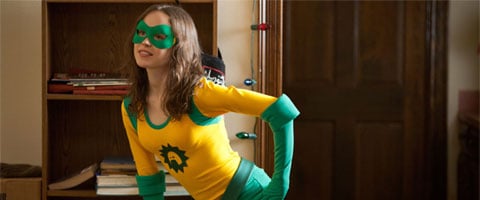
Really?
Yeah because they have so much stuff going on with religion there. They’re kind of, first of all, they’re a Catholic country. They’re not like the United States, where it’s 30% catholic or whatever, they’re fuckin all Catholic and they’re just now going through all the stuff with the priests molesting the kids and so really it struck some nerve. And every time there was a Jesus thing, they died laughing, like they’re hooping and hollering. And it was really cool, like, the biggest laugh in the movie was Jesus on the wall.
The screening I was at loved that scene.
It normally gets the laugh, it doesn’t normally get the biggest laugh, that’s Frank getting fucked in the ass. Frank getting fucked in the ass and then Libby saying she doesn’t know if that was actually the guy that scratched the car. But anyway, yeah, so the Italians, they really keyed into it. They were more receptive. Even with a lot of like American journalists and stuff, they don’t wanna ask the question, like it’s like something you don’t talk about.
Something I want to ask is that you’ve written scripts for other projects that other directors have gone on to do but all the films that you directed you’ve written yourself. So I’m curious, would you ever consider directing a film written by someone else?
I would. And I get offered screenplays written by other people. I haven’t ever found that thing that I really wanted to do. There have been two things that have come across my desk in like, the past, since Slither is when I started getting stuff that I considered doing. And one I would have done, maybe if the budget was bigger, but if the budget wasn’t big enough…
Can you talk about it a little?
Yeah, I can talk about it. It was a script called Sharks Versus Crocs by Joshua Radin, which was, it’s almost like Dawn of the Dead with a town that was flooded in Australia, and people are surrounded by crocodiles and sharks and I thought it was a great screenplay. But to deal with all that fuckin water and CGI, it’s like, the budget that they wanted to make the movie for, I just didn’t see it happening. Today actually it might be able to happen, because CGI is like…When we made Scooby Doo it cost $70,000 for every shot of Scooby Doo. That whole budget for the tentacle scene in Super was like, a few thousand bucks. So I mean the difference in CGI quality and what you’re able to get for your money is so different today. But yeah that was a great script and he’s a great writer, and that was the one time I really considered doing that.
Do you know what your next project is going to be?
Well my next project is Movie 43. So I’m finishing editing that and then I don’t know. I actually wrote a comedy script, I’m talking to an actor about doing that. And we’ll see if that works out.

Eric Eisenberg is the Assistant Managing Editor at CinemaBlend. After graduating Boston University and earning a bachelor’s degree in journalism, he took a part-time job as a staff writer for CinemaBlend, and after six months was offered the opportunity to move to Los Angeles and take on a newly created West Coast Editor position. Over a decade later, he's continuing to advance his interests and expertise. In addition to conducting filmmaker interviews and contributing to the news and feature content of the site, Eric also oversees the Movie Reviews section, writes the the weekend box office report (published Sundays), and is the site's resident Stephen King expert. He has two King-related columns.
